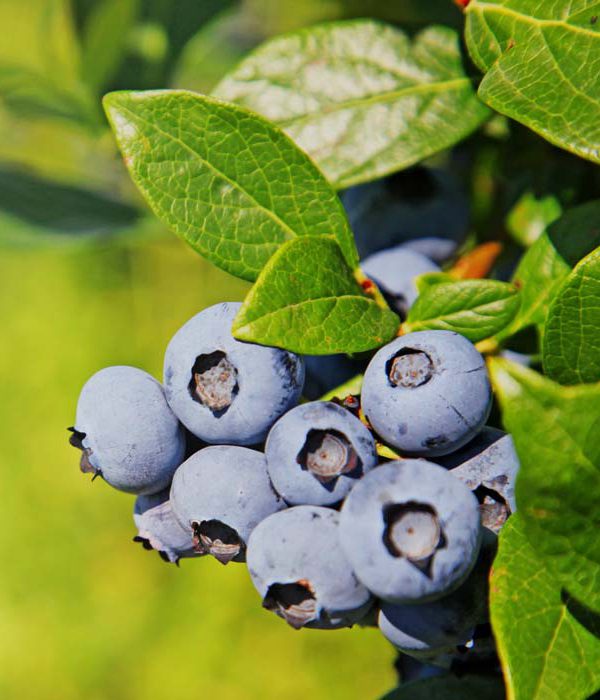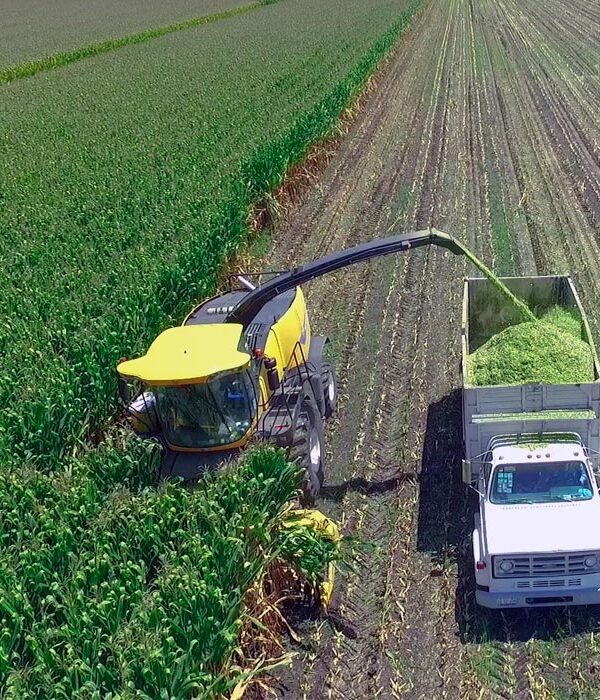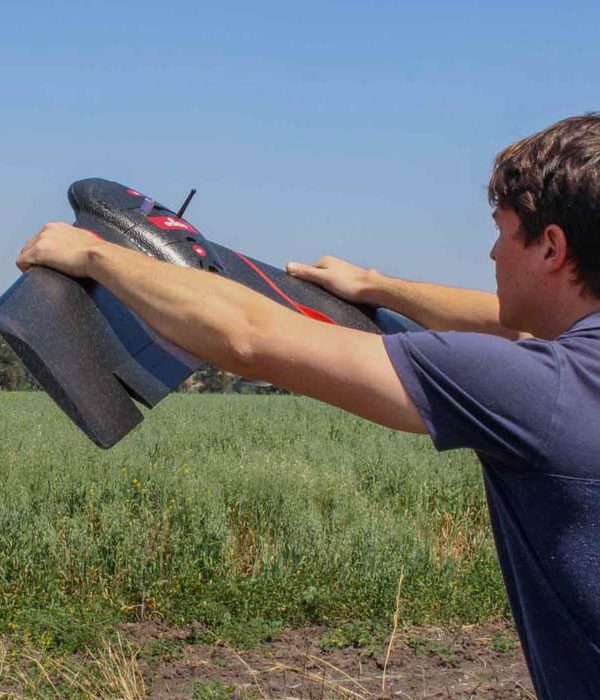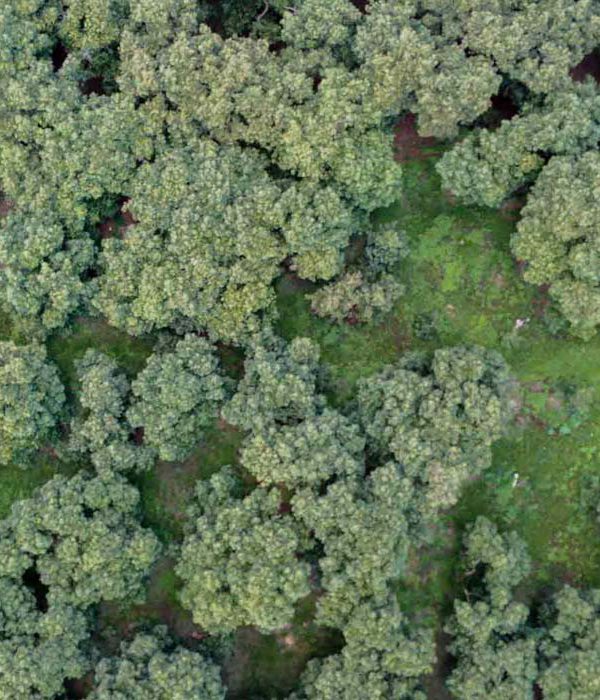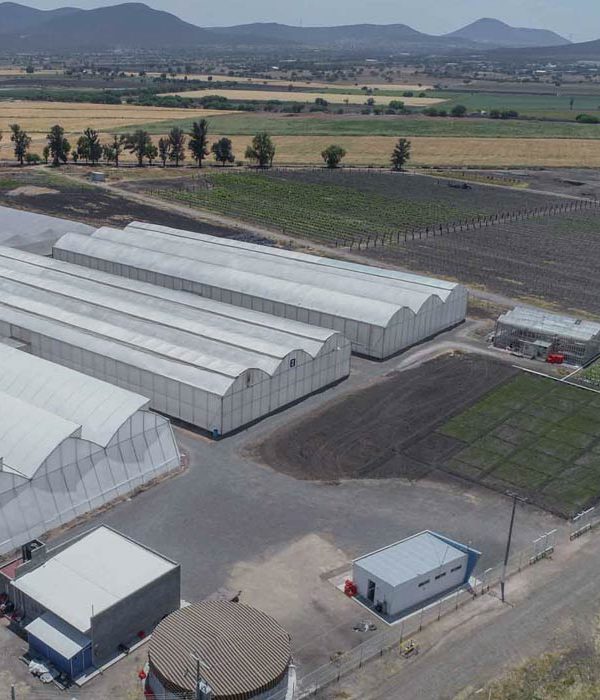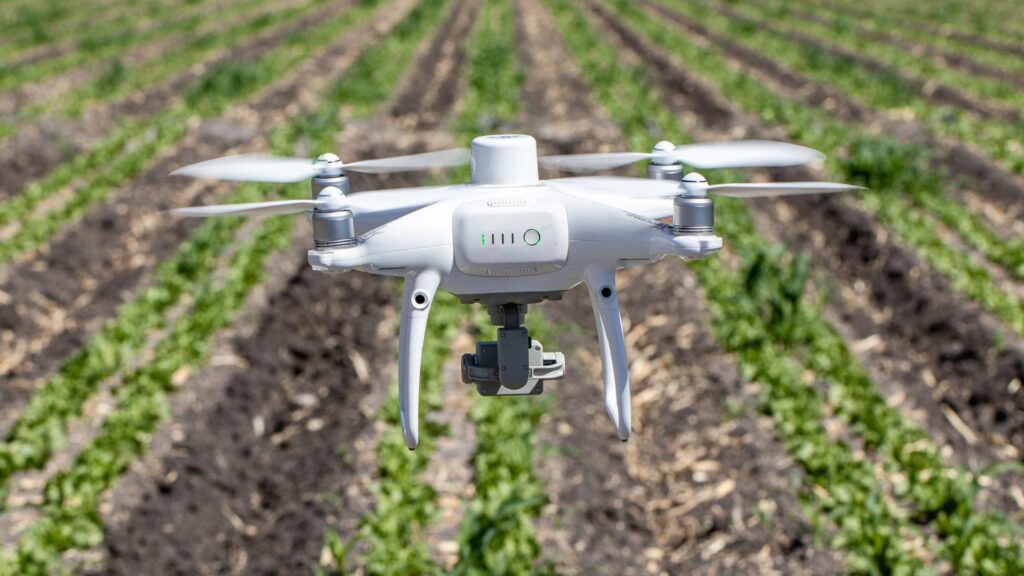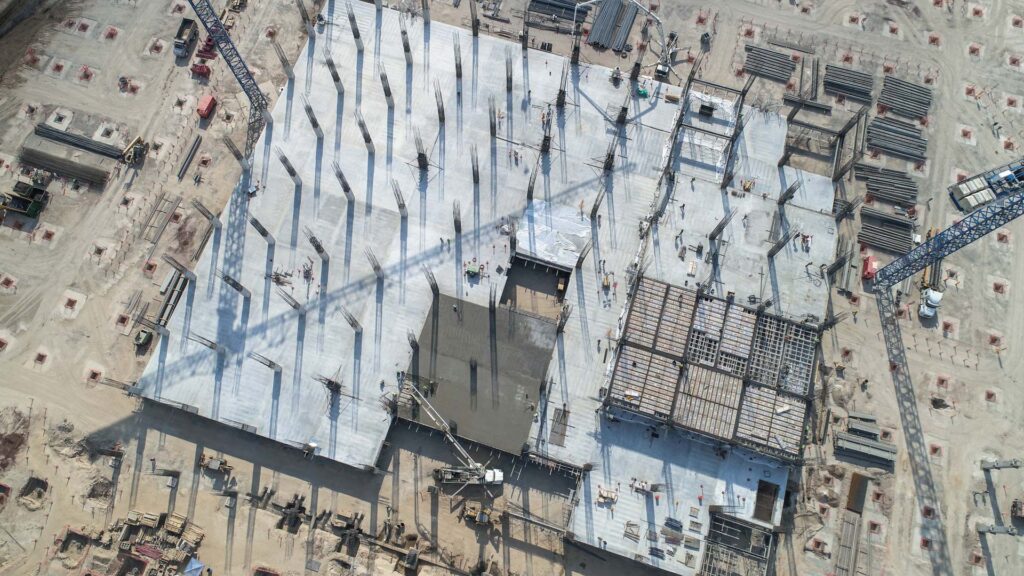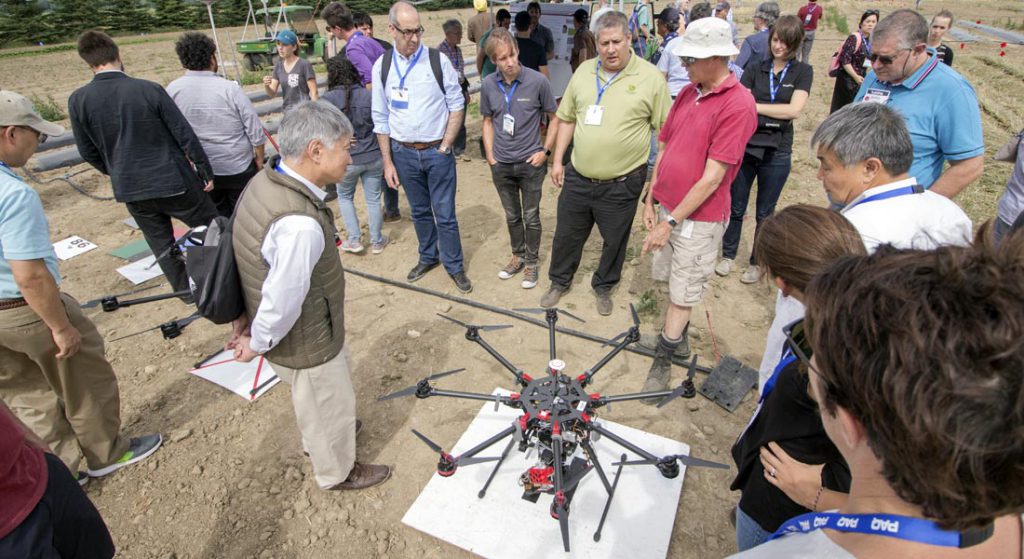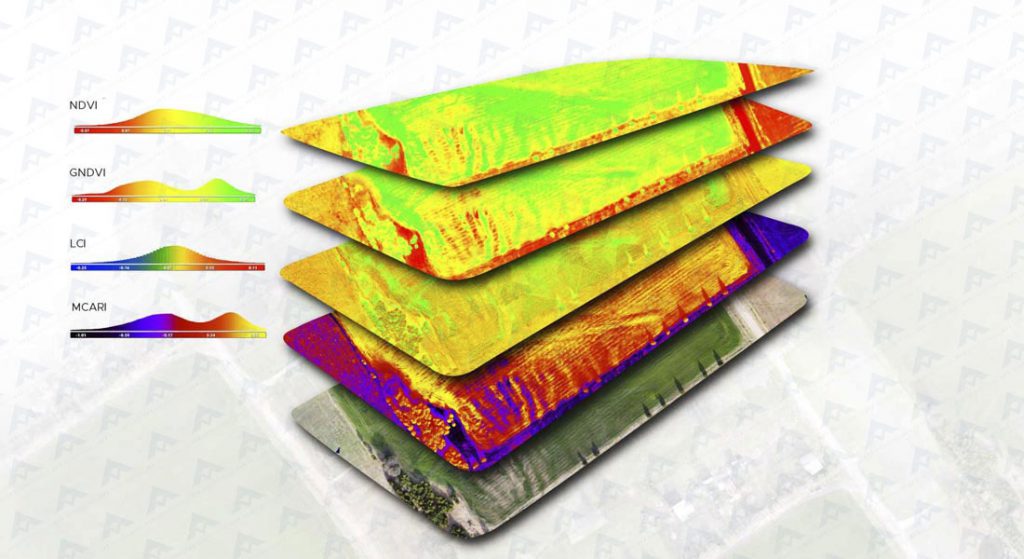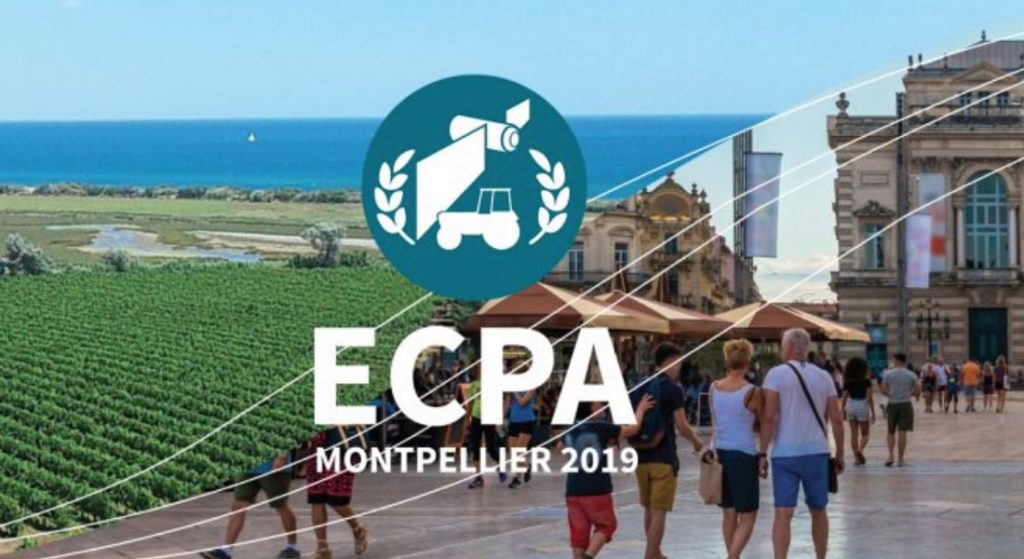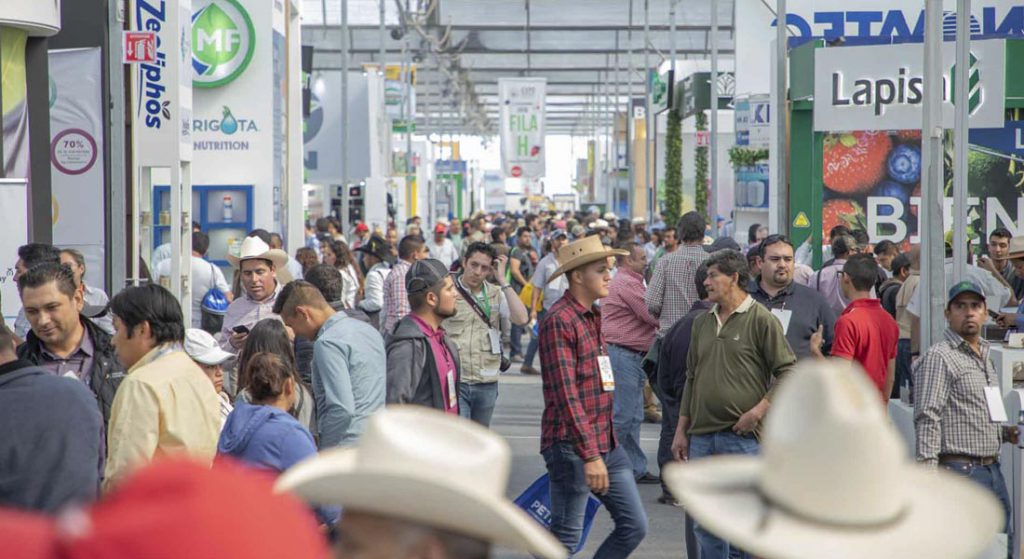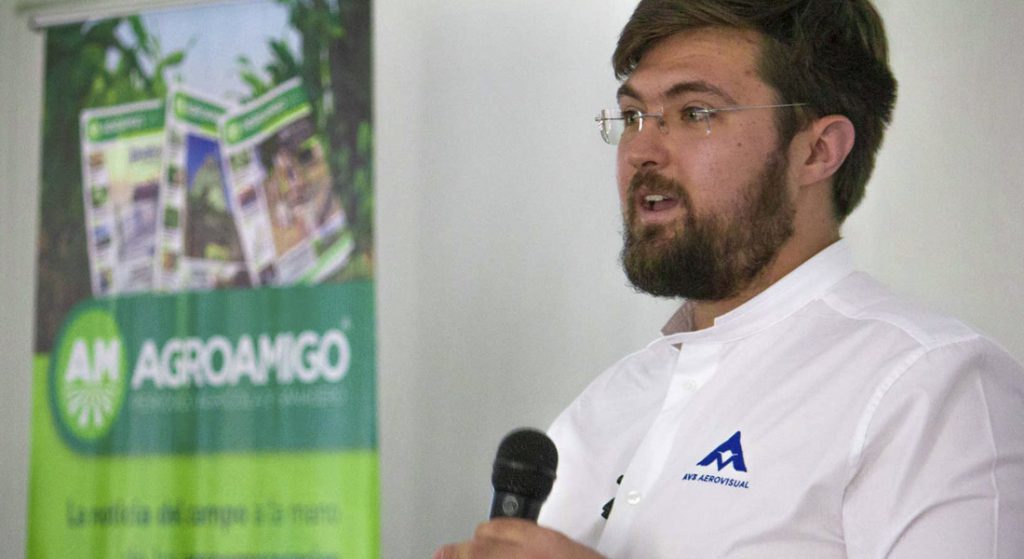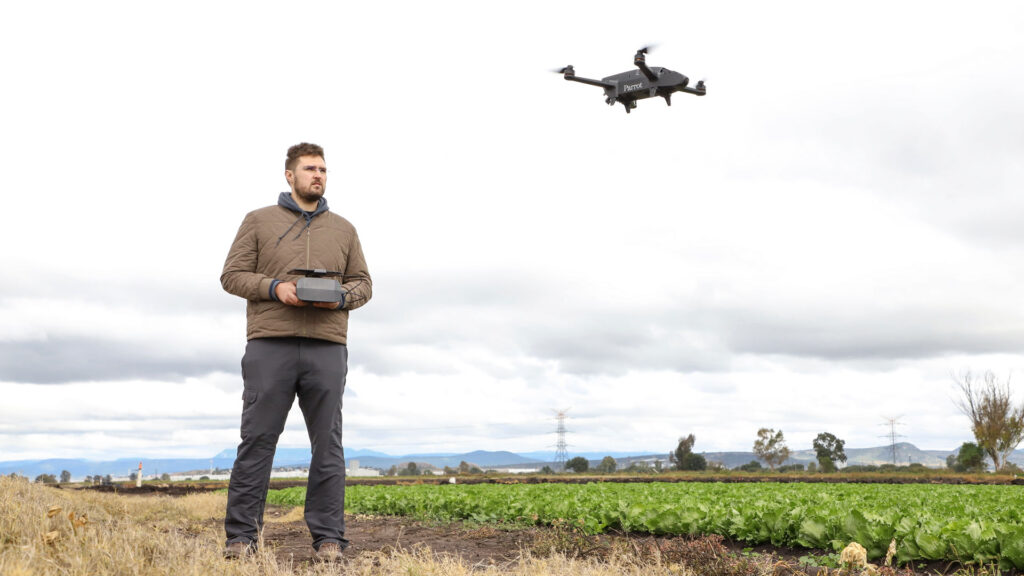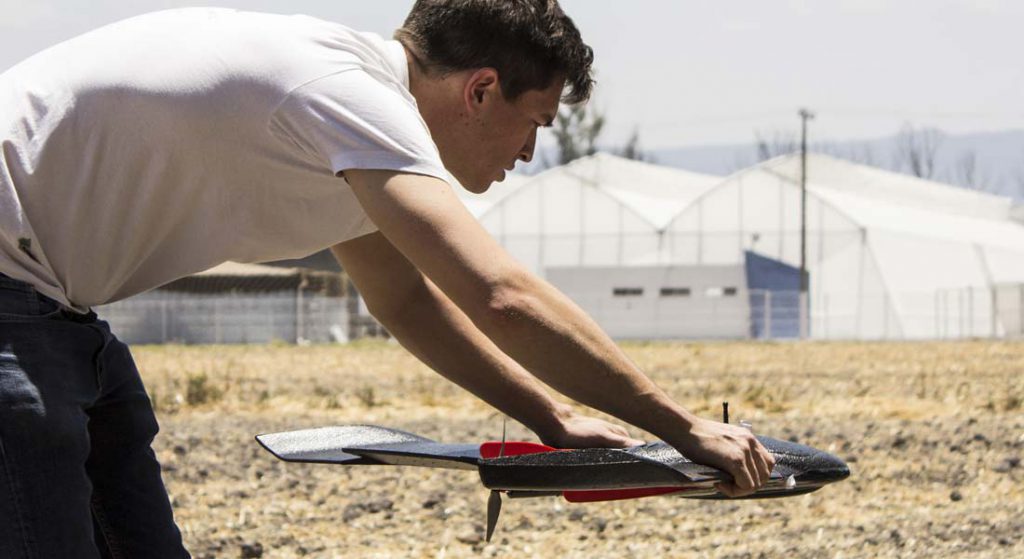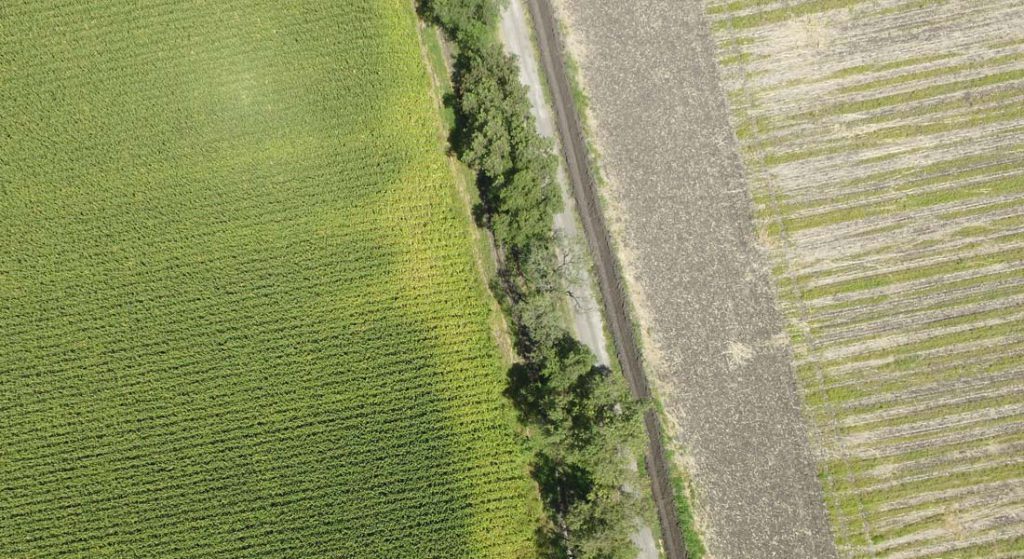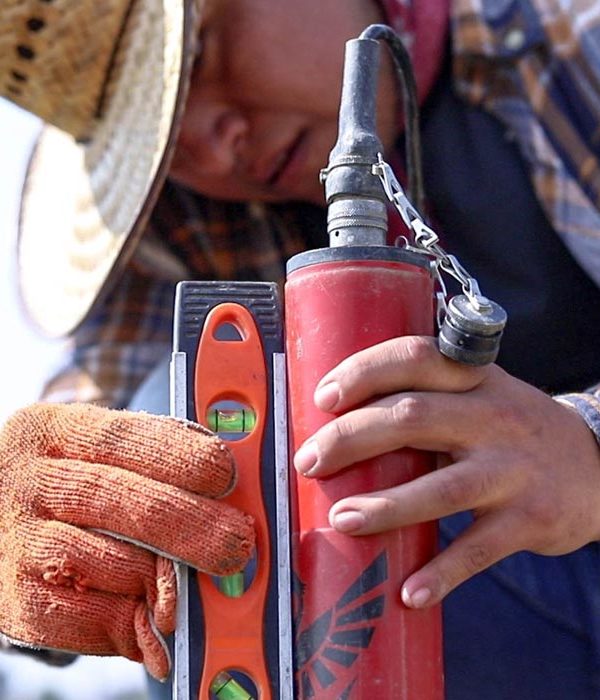
Why is precision agriculture important?
Agriculture can be distinguished as the most important activity in the history of human evolution. With agriculture, we went from being groups of nomadic gatherers, to global peoples and civilizations. Undoubtedly, agriculture has a special importance in the history of this planet; understanding it will be vital for the future of the world as we know it.
Nowadays, agriculture occupies 50% of the habitable land of our planet, which is approximately 19,700,000 square miles, where 77% (15 million SM) is used for livestock production, and 23% (4.2 million SM) is used for crop production (figure 1). Considering that the demand for resources is growing at the rate of the population, these figures will continue to rise for at least the next 30 years. In addition, agriculture constitutes about 7% of the global economy and about 60% of the population depends on agriculture for its livelihood.
This reality calls for special attention to how agriculture is carried out and how we can improve and make our agricultural systems more efficient.

Precision agriculture is among the innovations that generate the most interest globally in the agricultural industry. Precision agriculture practices can make production, quality and sustainability of crops more efficient and sustainable.
Today, precision farming technologies are a reality for many companies around the world. However, historically, small and medium-scale producers have been the last to adopt new agricultural technologies, and they are the ones who could make their production more efficient.

The agricultural sector in Mexico represents about 65% of the agrifood industry, which is equivalent to 9% of the national economy. This is why precision agriculture is a great opportunity to improve and make, not only national agricultural production more efficient, but the overall economy of all Mexicans.
What is precision agriculture?
Simply put, precision agriculture means using all available information to improve the sustainability and efficiency of agricultural production. Although the concept sounds simple, precision agriculture has some interesting facets that need to be taken into account to understand its current importance.

The International Society of Precision Agriculture, or ISPA, has two official definitions:
- Precision Agriculture is a management strategy that gathers, processes and analyzes temporal, spatial and individual data and combines it with other information to support management decisions according to estimated variability for improved resource use efficiency, productivity, quality, profitability and sustainability of agricultural production.
- Precision Agriculture is a management strategy that takes account of temporal and spatial variability to improve sustainability of agricultural production.
ISPA – International Society of Precision Agriculture, https://www.ispag.org/, 2019.
These definitions bring us closer to understanding three essential characteristics of precision agriculture:
1. Strategic Management
Precision agriculture means managing production based on information previously collected, processed and analyzed with the purpose of making the productive practice more efficient and improving it. If we see it from this perspective, most producers already carry out some type of strategic management to make their production more efficient.
The innovation of precision agriculture is the inclusion of technologies that improve these strategies, such as: weather stations, sensors, laboratory analysis, automation of nutrition and irrigation systems, multispectral cameras, infrared sensors, drones, satellite images, artificial intelligence systems, among other technologies. In this sense, technology serves as the tool for the collection, processing and analysis of information. The real challenge is to use this information for strategic management and decision making in the productive practice.
2. Variability
In agricultural science, practically everything is a variable. From the location and the land where the food grows, to the climate, nutrition, pests, genetics, methods, cycles, etc… It could be assumed that the vast majority of farmers and agricultural companies plan their processes, always trying to obtain the highest quality and/or the best possible yields. However, this does not always happen, and most of the time yields can be improved.
This is where precision agriculture aims to make an impact, whether it is to generate savings in resources, improve crop quality or increase yields.
For example, in a 10-hectare plot of corn for silage, the same corn could have been used, the same climate, the same amount of water, the same nutrition, and there would have been no significant pests in the plot; but there are many other variables that can influence to decrease the estimated yield per hectare. Understanding the temporal and spatial information of the individual crop, taking advantage of the variability in a positive way, can help make decisions that raise the yield higher than estimated.

3. Sustainability
It is interesting to understand that precision agriculture is not just about raising yields, improving quality or generating savings in production; in fact, the ultimate goal of precision agriculture is to increase the sustainability of agricultural production.
According to the United Nations Sustainable Development Initiative 2030, sustainability means seeking to meet the needs of current generations without compromising the resources and opportunities for growth and development for future generations. In general, sustainability comprises three dimensions: environmental, economic, and social.
In precision agriculture, environmental sustainability is particularly important, since agriculture is one of the activities that contributes most to the deterioration of the environment. Simply put, 30% of global greenhouse gases are directly related to livestock and agricultural production. Over the last 30 years, massive deforestation, the relocation of fresh water and the loss of biodiversity have led to a very significant deterioration in the planet’s environment.
This is why precision agriculture proposes to carry out a more ecological agriculture, which has the least possible impact on the environment and which uses resources in an optimal way.
In the dimension of economic sustainability, precision agriculture seeks to improve the quality and yield of crops, while saving money, time and resources. This is in order to generate greater profits for producers and promote sustainable growth in the industry.
By using the technology and methodologies of precision agriculture, the processes and profits of the productive practice can be made more efficient. In this way, farmers can invest their resources and time more efficiently, promoting the well-being and strengthening of local industries. In this regard, precision agriculture promotes social sustainability by empowering and strengthening the agricultural industry.
Precision agriculture for small and medium producers?
There are many reasons why technology adoption in the agricultural industry is quite complex and occurs at a slower rate than technology adoption in other industries. In the case of small and medium-sized producers, technology acquisition is even more complex because most of the time there are no resources of their own that can be allocated to actions outside of production.

It seems that small and medium producers only have the opportunity to evolve through subsidies and assistance from government institutions; and to some extent this is a reality, at least in Mexico. However, at present, the agricultural service industry is an important channel that can be used to distribute precision agricultural services.
Today there are many private companies around the world focused on providing precision agriculture services, implementing accessible technologies with good results. The advantage of precision agriculture is that technologies are increasingly common and accessible, so prices are starting to drop and service providers are looking to small and medium-scale producers as potential clients.
It is very important that the precision agriculture service industry understands the needs of producers and offers services that meet these needs and capabilities, always focusing efforts on meeting efficiency and sustainability objectives.
Precision agriculture with drones?
One of the precision farming technologies that are becoming more important due to their accessibility and good results is unmanned aerial systems, also known as drones. There are two common services where drones are used for precision agriculture purposes: variable drone spraying and remote sensing.
The variable spraying with drones consists of being able to apply agrochemicals in a variable and precise way through the use of drones, from pesticides to nutritional supplements and organic fertilizers. This technology is already a reality and there are several companies in Mexico and in the world that specialize in this service. It is important to keep in mind that drone spraying is a very specific method for treating special situations within extensive agriculture. This is mainly due to the fact that modern technology has limitations in terms of the amount of product the drone can lift, and the time it can fly.
Remote sensing with drones consists mainly of the use of drones for the acquisition of visual information with high-resolution cameras, multispectral sensors or laser detection sensors (LIDAR). This information is analyzed by photogrammetric reconstruction programs and image processing to generate vegetation indices.
Through the careful analysis of vegetation indices, valuable information is obtained about the general health and variability of the studied crops. With this information, zoning maps can be generated to visually understand the variability of a parcel and make more informed decisions, with greater intelligence and control.
Benefits of precision agriculture with drones
With the correct application of the technology along with the agricultural knowledge of the producers, important benefits can be obtained in the short and long term. Some of the most important benefits of precision agriculture with drones are:
- Generation of nutrient variability maps
- Generation of water stress maps
- Pest detection and analysis
- Estimation of relative biomass
- Plant counting and crop estimation
- Zoning for variable application

The most important thing about these services is to understand that the results generated are only the first part of the process: data collection, information analysis and recommendations. To truly reap the benefits of precision agriculture in the long term, producers are required to understand this information and make informed decisions based on this understanding.
It is very important that providers of precision agriculture services with drones offer the necessary consulting services so that producers can truly take advantage of the technology and obtain a significant return on their investment. Only in this way will the precision agriculture service industry be able to generate the value added to small and medium producers that the industry requires.
Things to keep in mind when performing or contracting precision agriculture services with drones
As in all agricultural and industrial activities, the use of drones has its own risks. Misuse, inexperience, or negligence can lead to delays and other unwanted consequences. That’s why precision agriculture drone service providers must have their processes established, rigorous, and measurable, and both equipment and operators must have their respective IDs, certifications, and standards for inspection.
In Mexico, the Ministry of Communication and Transport through the Federal Agency of Civil Aviation controls all activities related to civil aeronautics, including RPAs or drones. The current regulation for the use of drones is published in the Official Journal of the Federation under the norm NOM-107-SCT3-2019.
When contracting a precision agriculture service with drones, the following aspects should be taken into account:
- That the service provider has proven experience and expertise in agricultural issues.
- That the service provider checks that the equipment and instruments are certified and correctly calibrated.
- That the equipment used is correctly registered in the Mexican Aeronautical Registry.
- That the drone operators have a Pilot’s License of Unmanned Aircraft to be able to carry out commercial activities.
- That the pilots have experience and demonstrable flight hours.
- That the service provider has valid civil liability or labor insurance.
- That the service provider has a risk analysis and mitigation protocol in place.
- That the service provider has the required certifications and standards to perform the inspections.
For more information on this and other topics related to precision drone farming, geophysical exploration or other industrial solutions you can write to contacto@av3aerovisual.com
If you liked this article, help us spread knowledge by sharing the blog on your social networks.






